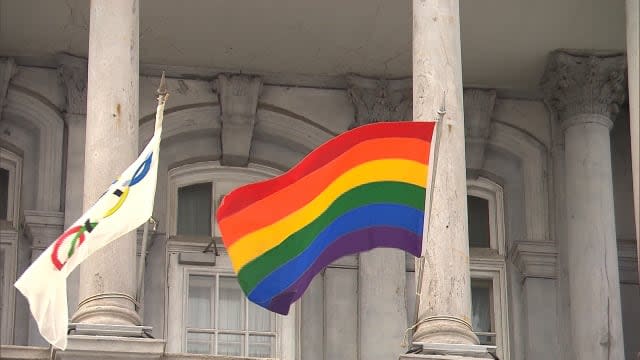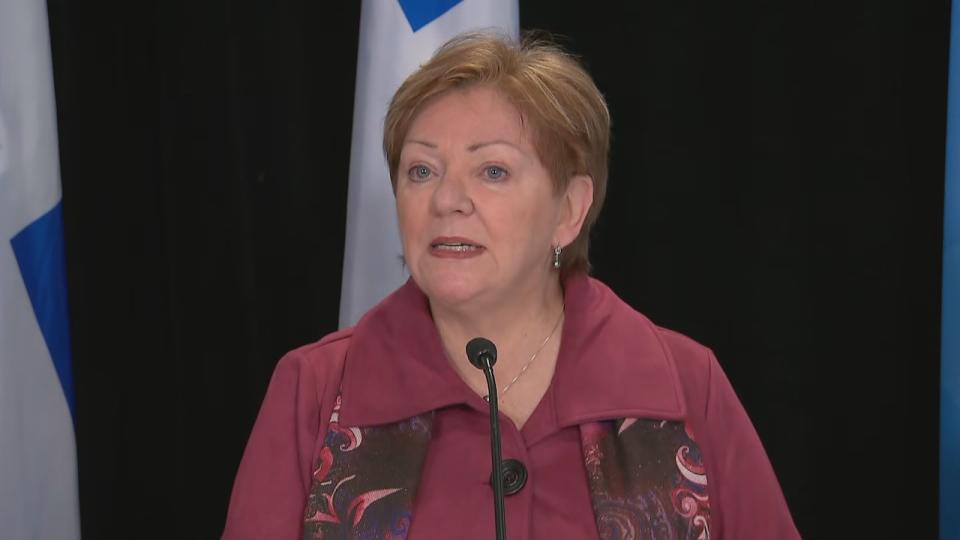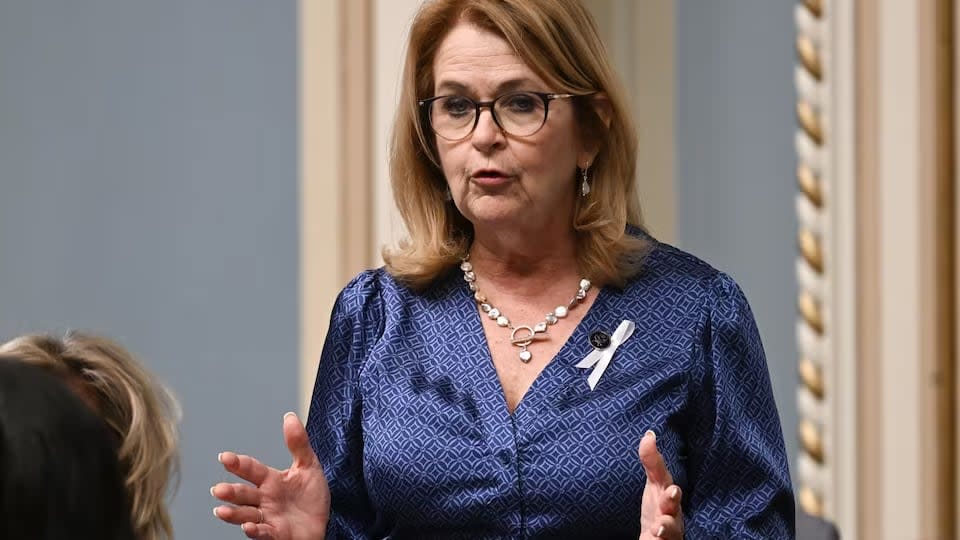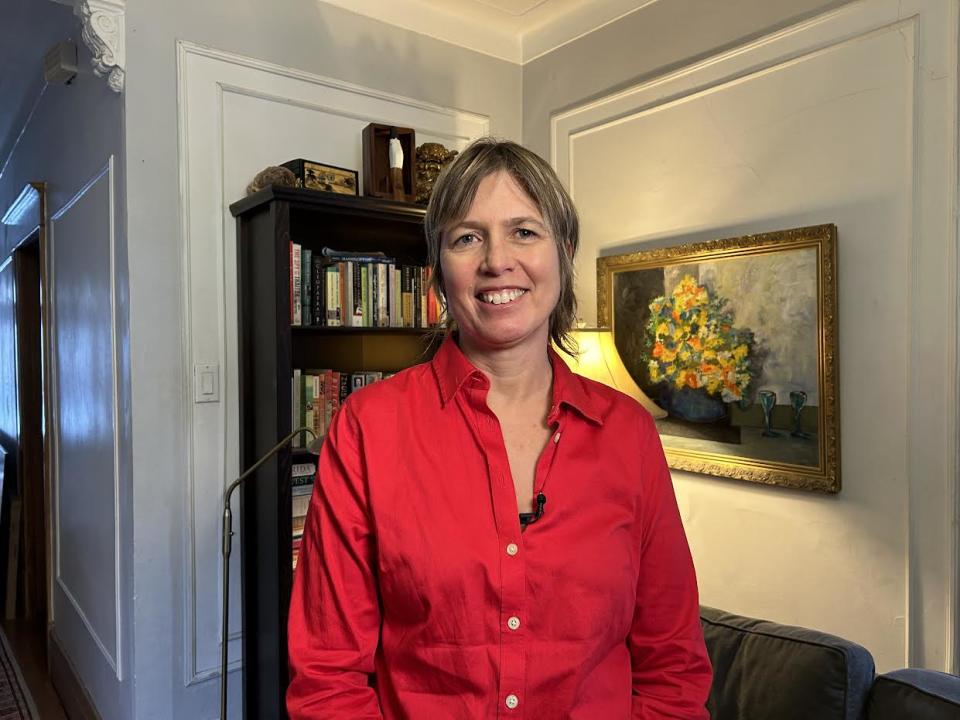LGBTQ advocates say Quebec's new gender identity committee lacks representation

Quebec's Family Minister unveiled the committee that will advise the government on gender identity issues Tuesday — and LGBTQ advocates are worried that they are not represented.
The province appointed Diane Lavallée, former president of the Fédération Interprofessionnelle de la santé du Québec (FIQ) and the Conseil du statut de la femme, Dr. Jean-Bernard Trudeau and human rights lawyer Patrick Taillon.
The committee is mandated to develop an information base, create a forum to inform future government decisions and help ease social tensions. All this will be done with the help of the Conseil québécois LGBT, a federation of 70 organizations that work with trans and non-binary people.
But some of those organizations have denounced the committee's makeup, noting that none of its members are experts in LGBTQ issues and aren't members of the community themselves.
James Galantino, head of the Conseil québécois LGBT, said the federation agrees with the committee's mandate but isn't happy with who was appointed.
"Unfortunately we were told the committee would exist with or without us. So if the committee exists, we'd rather have a role in it," he said.
"We don't know these people and we know they don't have an expertise on our realities, which are complex."

Diane Lavallée will lead Quebec's advisory committee studying gender identity issues. (Radio-Canada)
The federation will review the committee's work and give feedback. Easing social tensions should be the first priority as there has been a rise in anti-LGBTQ violence and trans rights are under threat in the United States and Canadian provinces, said Galantino.
Family Minister Suzanne Roy tried to ease those fears at a news conference Tuesday.
"I want to make this very, very clear. There is no question of going back on existing rights for trans and non-binary people," she said.
"Great strides have been made and we're not going to debate them or turn back the clock."
Lavallée seemed to agree, saying she believes that in Quebec, people can "calmly debate delicate, sensitive issues with openness and kindness, while respecting everyone's rights."
Galantino said his team will be there to hold the minister true to her promise.
"Even with all the good faith in the world there are still blind spots when we're not an expert on a topic and we could propose things that negatively impact people's lives," he said.

Family Minister Suzanne Roy says the government won't backtrack on trans rights. (Jacques Boissinot/The Canadian Press)
'Not a committee to represent the interests'
Roy pushed back against journalists asking about the absence of gender-diverse people on the committee, saying "it is not a committee to represent the interests of this community."
She added the committee would benefit from the expertise of the Conseil québécois LGBT.
"The mandate of the committee is not to decide for the government, but rather to help us obtain a clear and detailed picture of what's happening here, and what's happening elsewhere," she said.
The idea of creating a committee to study gender identity issues in Quebec came from Education Minister Bernard Drainville in September, after he asked a school in Abitibi, in western Quebec, to back down on its decision to adopt gender-neutral washrooms.
Kimberley Manning, principal of Concordia University's Simone de Beauvoir Institute, called the move a "sharp U-turn" in the wrong direction.
"I think this is a really disturbing development in the history of the province," she said.
Manning says it's wrong to frame a committee with three cisgender members as unbiased. Instead, she says it shows that the government is privileging the concerns of those who are not directly affected by these issues. And she said appointing a doctor and nurse gives the impression that gender identity is a medical problem.
"By putting this on the table, they're giving permission to a rise in hostility and transphobia," said Manning.
Francesco MacAllister-Caruso, a PhD student at Concordia University studying trans rights and political representation in Canada, said there's already a frosty relationship between the provincial government and gender-diverse communities. But MacAllister-Caruso is still glad to see some money going toward trans issues.
"The decision not to include any gender-diverse people on the committee, while not necessarily surprising to the community, is still disappointing," they said. "It sends a really negative message."
Trans activist Celeste Trianon says the Conseil québécois LGBT playing "an observer role" isn't the same as representation.
"For me, it's nonsensical," she said.
"Is it true that no trans person is wise enough to sit on a committee that will have an impact on their rights, their ability to live in society?"

Kimberley Manning, principal of Concordia University's Simone de Beauvoir Institute, called the move a “sharp U-turn” in the wrong direction. (Sara Eldabaa/CBC)
Opposition parties also criticized the appointments. Quebec Solidaire spokesperson Gabriel Nadeau-Dubois said it was "curious" that the advisory committee had no members of the LGBTQ community. Parti Québécois Leader Paul St-Pierre Plamondon said it the topic should have been discussed in a parliamentary commission instead.
Liberal MNA Jennifer Maccarone took to X, formerly known as Twitter, to point out that there are experts in sexual diversity and gender plurality who could have sat on the committee.
"If we follow the government's logic, the next time there are consultations on the status of women, it should only be men talking about it?" she posted.


